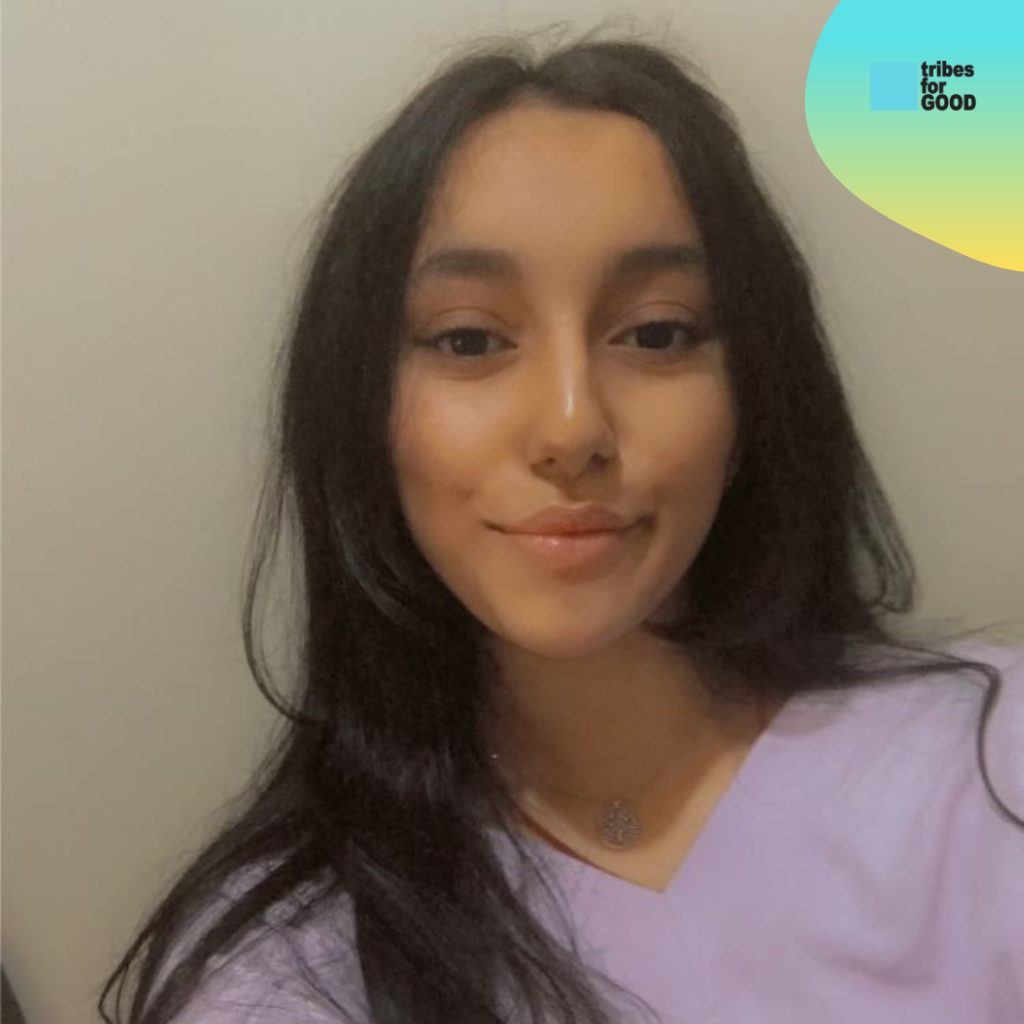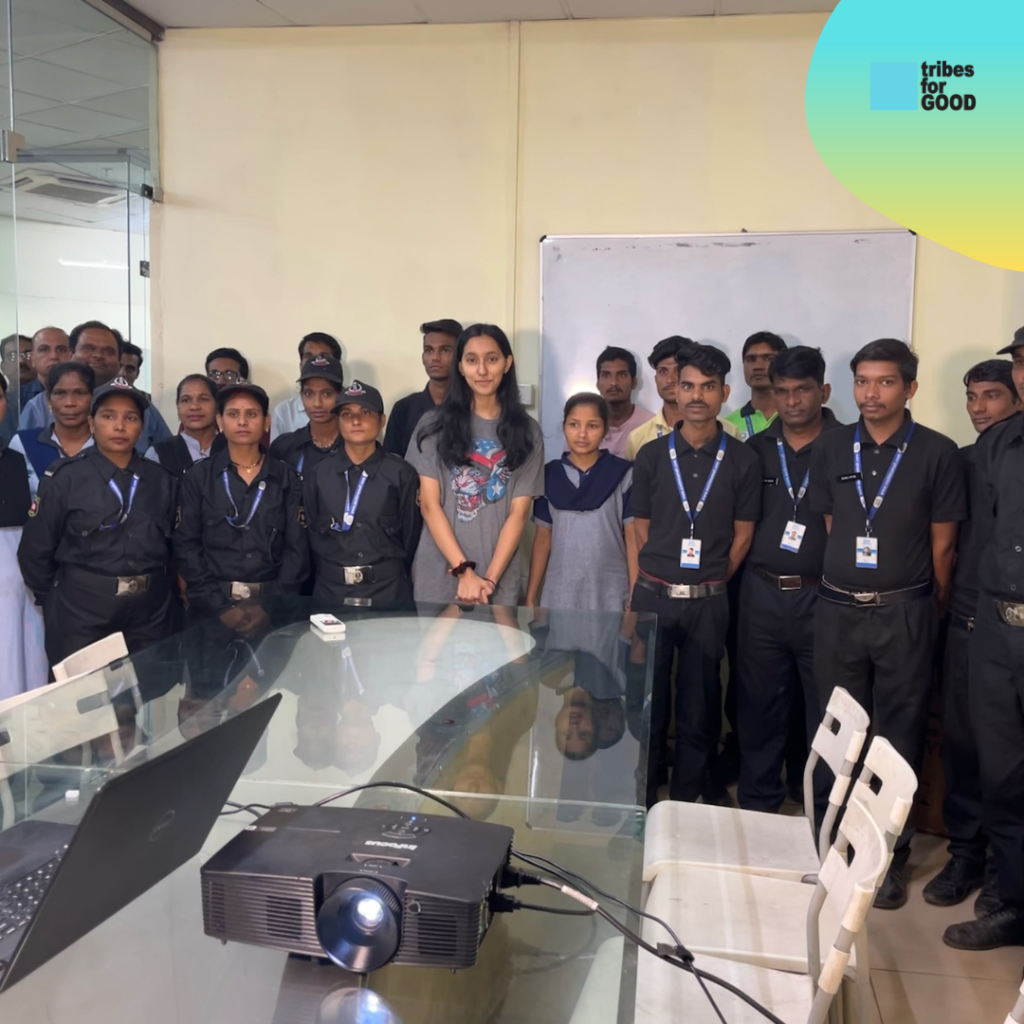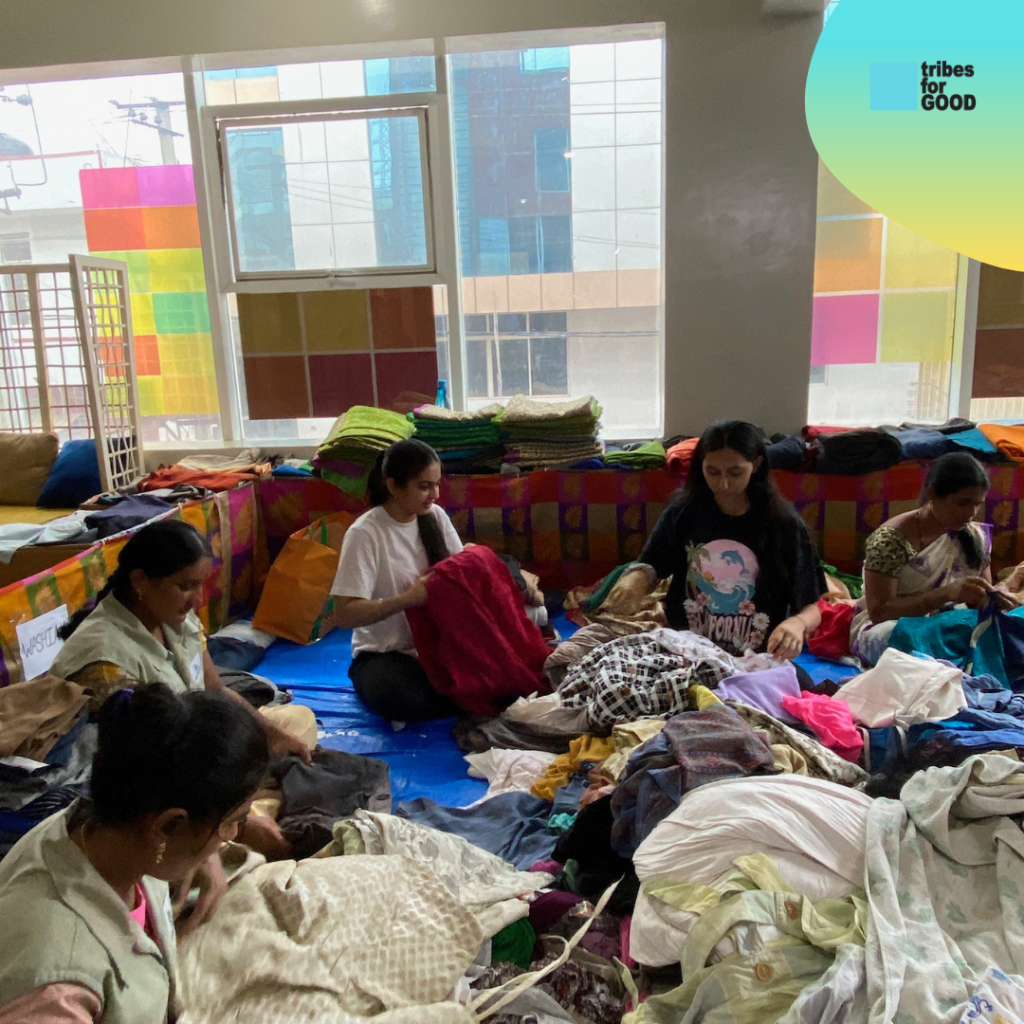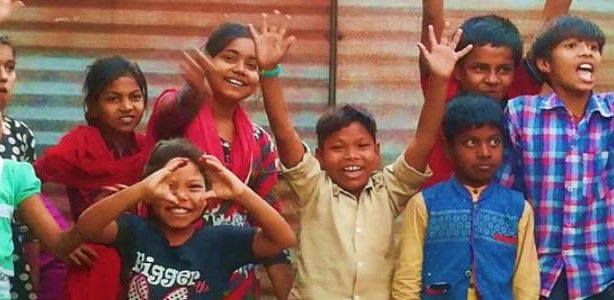Into the Mind of a Youth Leader: Meet Aashima Keswani, Founder, Ladki Padhao
What takes someone from being a novice in community work to the founder of a youth-driven community? Read Aashima’s journey to know the answers.

Gen Zers are more aware of their privileges and thus more inclined towards working on societal issues. While many are willing to volunteer on an on-and-off basis, some continue their attempt at change-making consistently. A rare few take it to the next level — building youth-driven communities rallying to achieve SDGs. Meet Aashima Keswani, a youth leader from The International School Bangalore who’s also the founder of Ladki Padhao, a collective aimed at empowering girls & women through education.
What takes someone from being a novice in community work to the founding member of a community? Ashima’s journey shows that the answer is in the willingness to immerse oneself in a problem area & finding sustainable solutions. As a privileged youngster who grew up with a sheltered upbringing in the US before moving to India, she vouches for the importance of exploring the depth of an issue by talking to people on the receiving end.
In India, Aashima couldn’t ignore the countless faces of poverty around her. As someone who loved talking to people, she veered towards people-centric initiatives. Besides, watching her grandparents who were actively involved in the welfare of animals had already ingrained in her the thought of doing more for other beings.
Her first endeavour in community work was through TribesforGOOD in late 2020 as a part of her school work. She worked with the survivors of human trafficking housed at Kshamata, an NGO in Maharashtra. She and her cohort documented the stories of the women in an attempt to bring more awareness to human trafficking. Through the project, she also conducted workshops to impart awareness about trafficking to young children. That experience, eye-opening in Aashima’s words, made her feel more connected to girls & women.
This exposure then led her to research prevalent issues to which she could contribute meaningfully. Aashima acknowledged that although every societal issue had merit for working upon, she felt education would help bring about long-term & sustainable impact. She then narrowed her research trying to identify which groups of people weren’t getting an education, what was restricting them and what were the ways to fill the gap. After months of research in 2021, she founded Ladki Padhao in Bangalore later that year with a classmate.

With Ladki Padhao, Aashima and her co-founder identified the key issues restricting girls’ education in India & solved them. They addressed the lack of infrastructure with book donation drives. They also donated whiteboards & other educational resources. The second issue they identified was the lack of period products which caused girls to miss a week of education every month. They tried to address it by fundraising for reusable pads and donating them to young girls and also conducting menstrual awareness sessions. Another problem area they sought to address was to alleviate the safety concerns of parents by equipping girls to protect themselves with self-defence classes. With student volunteers, interns, leaders and chapter heads, Ladki Padhao has been working as a full-blown team committed to the greater good through education.
Aashima admitted that her team didn’t initially see themselves working on different aspects to tackle the problem of education inequity. However, immersing herself in the issue and talking to different stakeholders to gather their experiences helped her identify the multiple ways to combat it. For a youth-led organization where everyone is still juggling school work, family and friends, this may seem a daunting task. Yet Aashmia has managed to streamline it well with different projects and processes in place. Ladki Padhao has managed to support youngsters and women with educational resources, distribution & making of reusable pads, self-defence classes and menstrual awareness.
While actor Emma Watson’s speech for the HeforShe campaign at the UN in 2014 set ablaze the feminist in her, Aashima acknowledged her mother’s crucial support in the operations of Ladki Padhao. When asked if she now considers herself a social entrepreneur, Aashima smiled at the thought. She stated that if social entrepreneurship simply meant starting an initiative, following through with it and being innovative, she did fill the shoes. However, as a youth leader who recognized that social entrepreneurship was more complex with big goals & everyday operational challenges, she felt she was yet to earn the title. Yet she has been learning on the job consistently, setting Sunday meetings with her co-founder for weekly agenda and evaluating its progress mid-week, delegating work to student leaders, building the team with volunteers and more.

Ladki Padhao’s biggest strength and challenge has been student volunteers. Aashmia recounted that while their support drives the key operations such as awareness events, marketing, outreach and partnerships, ensuring only committed folks are taking on tasks was a challenge. She also shared that some organizations were sceptical of youth-driven initiatives due to their own unpleasant experiences and were unwilling to partner with Ladki Padhao initially. “We then have to validate our work and show them that we’ve been consistently working towards our goals. Our social media presence and our partnerships with ITC Limited, my school TISB and Christ Univesity have helped us gain that validation,” Aashima said. She further added that starting Ladki Padhao chapters in cities such as Delhi, Mumbai, Chennai and Kolkatta was now the team’s main focus. The team is actively looking at applications from students interested in community work through their Instagram page.
As a youth leader, Aashima urges fellow Gen Zers to take up social impact projects even if on a small-scale or a one-time basis. She reiterated the perspective shift one could gain by immersing themselves in such experiences. Besides, as Aashima recognized in herself, community work also offers scope for personal growth — patience in dealing with people and problems & improved communication, in her case. Quoting Aashima, “Immersing yourself in societal issues and dealing with them is going to change your life.”
Like Aashima, you can
- Explore community service in an area of your interest
- Build entrepreneurial skills & improve soft skills
- Experience collective youth power in achieving SDGs
Take that first step!
Begin your change-making journey by signing up for the upcoming cohorts of our Global Challenges & Social Justice Program.
Related Articles


